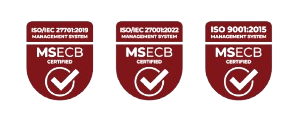From the earliest days of scribbling with stone on a rock to now sending gigabytes of information in seconds – communication has come a long way in most parts of the world.
The sector that has seen the most growth is the mobile comms industry with some of the biggest players in Africa like MTN, Vodacom and Orange boasting millions of subscribers on their networks.
At the onset, one of the biggest issues that the industry faced in adoption was user registration.
Security was a big challenge. How could you verify a user’s details?
What about speed? Do they have to come to you or do you go to them?
As usual, problems inspire solutions and some of them like BioSmart (a sim registration platform), equipped mobile operators to conduct end-to-end biometric registrations while meeting all the regulations for identity enrolment.
Digital KYC changed the game.
Yet, there’s so much more that can be done. This is a preview of what the future holds for the sim registration process in Africa.
What are the current challenges?
In the current ecosystem, as giant as the strides we’ve made, certain problems still limit the adoption of mobile communications, especially in remote areas.
One, mobile agents can only go as far as transportation allows and even then, the process is limited to disconnection issues due to internet connectivity and data transference.
Security-wise, nationwide data needs to be centralised where one identity cuts across multiple telcos, in order to curb fraud on multiple sims from the same user.
How about user churn?
In a competitive industry that offers similar features and benefits from multiple vendors, it is hard for an operator to stand out without employing a world-class experience from start to finish.
Self-Service for Better Adoption
As Uber changed the game for inner-city transportation, perhaps the same model could be applied to mobile communications.
The pandemic restricted movement in physical locations and agent registration has shown to be to be likewise limited.
So for faster adoption and reach, customers will need to be able to register themselves securely without visiting a store while meeting industry rules and regulations as well as the operator’s policies.
How?
Through secure customer identification and AI-based SIM registration.
Currently, operators within the industry are already considering a potential self-service option. How would this work in a climate like Africa?
- A mobile app or web portal will be required with an AI guide much like the way chatbots work on some social sites.
- User hardware would need to be upgraded across scale. For example, you can’t capture an image with a low-end device and meet compliance rules. This could be solved with a self-service kiosk similar to ATMs in malls/streets etc.
- Security protocols like passive liveness feature and Face match – using a unique identity like a national identity number for validation. This would reduce override and bypass as much as possible.
Another possible solution is contactless capture.
Mobile operators would spend less on registration hardware as one device could capture multiple data using OCR (optical character recognition) to extract text and then auto-populate it without any physical contact with the hardware.
In Conclusion
Combating subscription fraud which accounts for up to 35-40% of all fraud in the industry and complying with industry regulations will prove the biggest determinants of the success of future innovations.
Customers will always demand the best and the mobile operator who can provide a seamless experience for them digitally and offline will gain the market share.
Seamfix, as a digital transformation company, is primed to tackle these challenges and provide adaptive solutions for the industry as we partner with progressive operators looking to build Africa’s next mobile industrial revolution.
Read more about our SIM registration platform, Biosmart – the digital KYC product changing the game in telecoms.
Do you have a problem with your user registration? Contact us for our tech solutions which can help you acquire more customers and comply with regulations.










